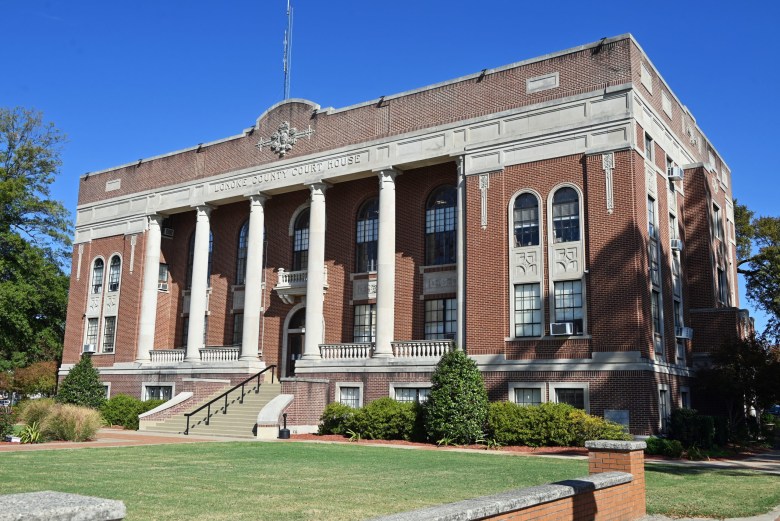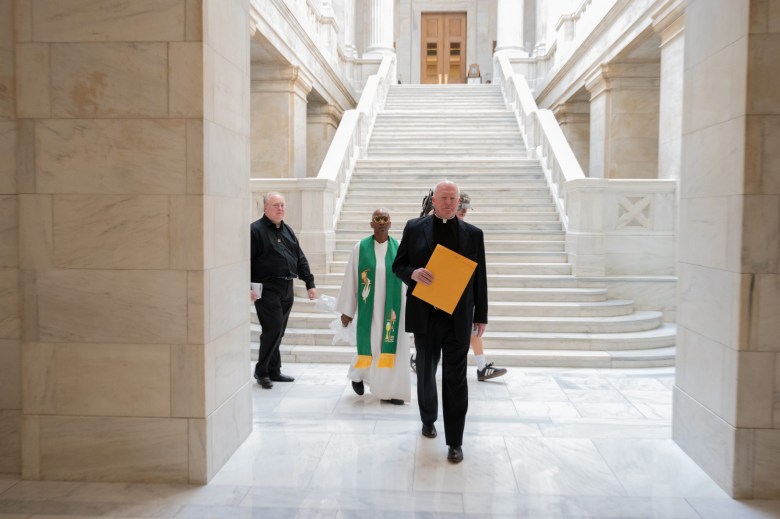The county’s decision to sign a contract with a solar business that wants to construct a 300 megawatt project near Keo that could provide enough renewable electricity to power up to 70,000 households has been delayed by Lonoke County Judge Doug Erwin. Together with a tax abatement agreement to reduce the solar project’s property tax burden for the first 30 years, Invernegy, the privately held energy business behind the project, is requesting that Lonoke County issue a $700 million bond to finance its construction.
About 50 locals packed a cramped, steamy room to hear a plan from Invernegy representatives during a Lonoke County Quorum Court meeting held Tuesday near the county courthouse. According to Arkansas law, Erwin, the county chief executive, is the only person with the power to sign the contract the corporation is requesting in Lonoke County; however, he must first gather public input before making a decision.
With one project, the Walnut Bend Solar Energy Center, now operational in Lee County, Invenergy already has a number of solar projects in construction around Arkansas. However, the Downstream Solar Project, which they intend to construct close to Keo, would rank among the biggest in the state. A smaller piece of land in nearby Pulaski County would also be included in the project. Judge Barry Hyde of Pulaski County is hosting a public hearing on Thursday to discuss the bond and tax abatement plan.
To construct the project, Invenergy has leased roughly 6,000 acres from a dozen landowners in the counties of Lonoke and Pulaski. About half of that land would be covered by solar panels, and the business anticipates having the solar facility operational by the middle of 2028.Similar to the Walnut Bend solar project, Entergy, a major utility, would purchase power from the Downstream project to supply to its consumers.
In addition to the England School District and Pulaski County Special School District, which serve kids in many of the county’s rural and exurban areas, Invenergy anticipates that the project will generate tax income for both Lonoke and Pulaski counties, where it has leased territory. Through a state policy known as payment in lieu of taxes, or PILOT, Invenergy is requesting that the county governments sign a tax abatement agreement that would enable the company to pay a lower tax bill for the first 30 years of the solar project.
For the first 30 years of their project, Invenergy would only pay 35% of the property tax that would otherwise be owed if they were granted the maximum abatement rate of 65%.
Invenergy would continue to run and oversee the solar farm while transferring the bond-financed solar infrastructure to Lonoke and Pulaski counties in exchange for the tax benefits. The counties would get lease payments from it, which would go toward bond debt repayment. Residents were reminded by Erwin that the bond’s issuance would not result in higher taxes.
According to Erwin, many businesses entering Arkansas take advantage of the PILOT tax abatement scheme. Invenergy estimates that over a 30-year period, the project will generate $25 million in taxes for the England School District and $5.6 million in taxes for Lonoke County, even with the tax abatement.
If Invenergy is unable to get a deal with Lonoke County, it is uncertain whether it will proceed with the solar project. “We believe our projects can only be successful when they work for local communities,” Eve Shanahan, the Invenergy project developer present at the meeting, stated. “We look forward to bringing the economic benefits of the project, including over $200 million invested in landowner payments and PILOT payments between the counties.”
Erwin, however, felt he needed more time before accepting or rejecting the arrangement after hearing feedback from the public. People in Lonoke County had a lot to say about him. Shanahan and Erwin fielded questions about everything from how the solar project got started to environmental effects, tax revenue to the county and schools, and other subjects that had little to do with whether the county should approve the tax abatement during the nearly hour-long meeting. Many locals expressed doubts about whether Invenergy was owned by foreigners, and it appeared from their inquiries and remarks that they had little interest in foreign businesses making money off of the resources and property in Lonoke County.
Michael Polsky is a Ukrainian immigrant who started Invenergy, a privately held American firm with its headquarters located in Chicago.
In response to numerous citizens’ worries about pulling farmland out of use to install solar panels, Erwin repeatedly stated that the landowners had freely chosen to work with Invenergy to develop the solar project. (A recent study that was previously reported by The Arkansas Times revealed that even if solar energy projects in Arkansas doubled, they would only occupy a small portion of the state’s overall cropland.) When the solar plant reaches the end of its useful life, the business has also promised to decommission and recycle it.
Following the discussion, Erwin told the Arkansas Times that while he was impressed with the solar project, he wanted to work with Invenergy to get a better tax rate. Shanahan did not explicitly respond when asked if Invenergy would engage in additional negotiations, suggesting that he was reluctant to accept a greater tax burden.
According to Shanahan, the company anticipates creating three full-time employment once the project is operational, in addition to 300 temporary construction jobs.
Although there could be significant economic benefits for Lonoke County and the England School District, Keo Mayor Stephanie White told the Arkansas Times during the community gathering that she wasn’t anticipating a significant boost to her town’s economy. Although Keo granted Invenergy a conditional use permission to start building inside the city borders, White stated that she anticipated the land’s conversion from agricultural to commercial usage would only slightly raise the town’s tax income. She estimated that monthly revenue would rise by about $1,200.
They are quite kind and would get in touch with me when they visited the area, but I was unaware of the project’s specifics, White said. Negotiations with Rose Law Firm and the billion-dollar solar corporation are not fair to me, the mayor of Keo, and a nurse at Arkansas Children’s Hospital. I would really like to see them make a significant contribution to our community.
Although she claimed to have been involved in the business’s first conversations over the solar project, she wished that a company of that size would have been open to entering into a community benefits agreement with Keo and the Keo Collective, a charity that supports the town. A community benefits agreement is a formal contract that, on behalf of a business seeking development, ensures specific advantages for a community and specific behavior. Such agreements frequently contain provisions for environmental mitigation.
According to White, the business is instead proposing to enter into non-binding memorandums of understanding with Keo and the NGO. Since talks are still going on, White will not reveal the details of the MOU or the community benefits pact she suggested in its place.
It’s dragon-slaying time!
The Arkansas Times, which relentlessly defends the fundamental rights and liberties in our community, stands as a light of truth in an era when critical voices are being silenced more and more. Our commitment to provide uncompromising journalism has never been more important, especially with Arkansas in the center of a broad culture war that is impacting our libraries, schools, and public conversation. We can’t accomplish our goals of defeating dragons and holding those in positions of authority responsible alone. You can guarantee that independent journalism in Arkansas not only endures but flourishes by making a contribution today. We can join the fight and make a difference together.







